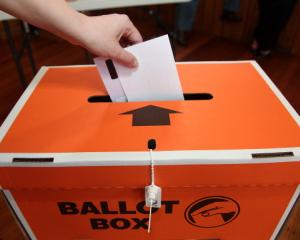The introduction of the change, expected to cost about $8million, is still some years away, but basically it means 90% of patients will be assessed by a generalist team on arrival and sent to an adjacent medical assessment unit (MAU) with only the most urgent cases going to the emergency department. (The hospital already has a MAU, but it is on the seventh floor.)
This is part of a move to more generalist admitting, where generalist physicians assess patients holistically, also considering their social circumstances, and bring in sub-specialists as necessary. Some of these patients may be admitted while others might be supported to return home. Critics worry some acute conditions may not be picked up readily and some specialist knowledge could be lost.
The hospital is coming under increasing pressure each winter which is expected to escalate as the number of people aged 75 and above, those most likely to be admitted to hospital, increases at a rate much higher than the overall population over the next 20 years.
As the business case report before the board this month pointed out, the hospital struggles to meet the needs of its current population. Those admitted under internal medicine spend an average of eight hours in ED and a growing proportion of people leave the department without being seen.
The ED has been falling well short of the national target for 95% of patients to be attended to within six hours — its current performance is at about 80%.
The proposal, unanimously approved by the board this month, is the latest attempt to address the issue of patient flow through the stretched department, something which has been subjected to relentless perusal over more than a decade to little effect.
We wonder if anybody has analysed the cost of the various campaigns and piecemeal changes and their value for money.
People arriving at the ED will just want to be seen promptly and treated effectively and will no doubt be pleased if the new arrangement will deliver that.
It is considered the more generalist approach will speed up decision-making, improve patient flow and safety and reduce the length of hospital stays.
It would be unfortunate, however, if instead of having patients clogging up the ED, the hospital found its 10-bed, eight-chair MAU was overwhelmed.
It has already been suggested that for the system to work as intended, clinicians will need faster access to scanners, something which would require extra spending.
For the changed approach to work efficiently, it seems there will have to be some culture change, something which has proved challenging in past initiatives.
The business case report says under the existing arrangements, senior doctors in internal medicine have felt their service is like a "dumping ground" for unwanted patients rather than the heart or engine of the hospital medical service.
There is a sense referrals are often made to a sub-specialty first with internal medicine getting the patients if the sub-specialty declines to accept them.
"This approach can lead to delays for patients while specialties resolve disagreements on ownership," the report states.
It says this situation is "symptomatic of the fragmented and siloed medical culture that exists within the organisation and a fundamental issue to be addressed as one of the key success factors previously identified.
"The fragmented service and delays have a significant negative impact on the DHB’s patients."
We have heard this depressing refrain about board services so many times in recent years we are not surprised the board was told the implementation of the new strategy would be complex. Patients will be hoping complex does not turn out to be a synonym for impossible.












